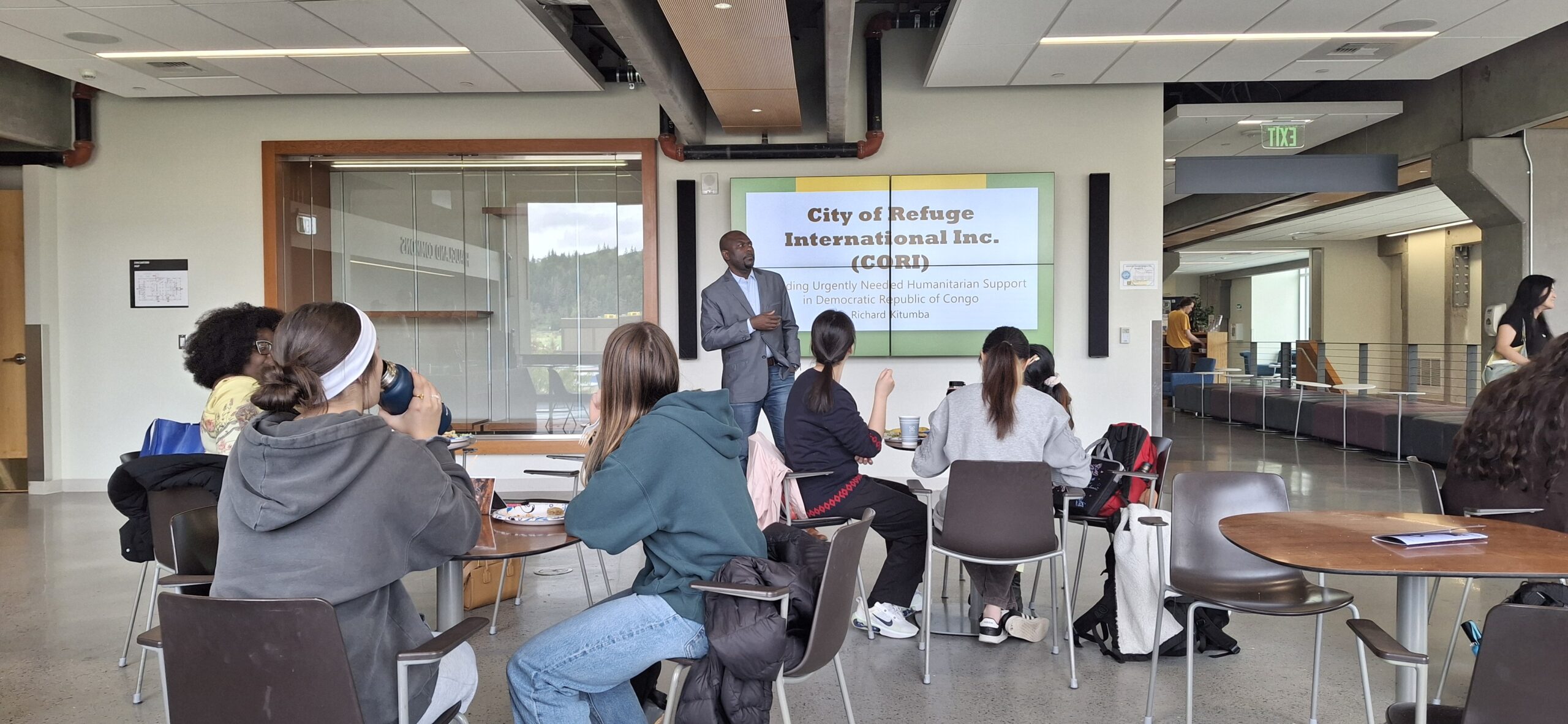Student Groups Organize to Spread Awareness
By Michael C. Sherman
Students at Lane Community College rallied April 9 to listen to Richard Kitumba speak on the ongoing humanitarian crisis in the Congo. Fighting between rebel groups and government forces has intensified as world powers from the United States, China and other foreign nations seek control of one of the most resource-rich regions of the world.
In an event organized by second year student Marie-Ange Nussang from LCC’s African Student Association, students gathered to share food and learn about the crisis that is growing in Central Africa. The event, which was catered by Northwest Collegiate Ministry, serves free weekly lunches at LCC though a program called F.L.O.W.
According to the World Bank, who provides economic data and loans to developing nations, the Democratic Republic of the Congo (DRC) is one of the world’s largest sources of cobalt, and other critical components of electronics, such as cell phones and electric vehicles. They go on to state that “Most people in DRC have not benefited from this wealth. A long history of conflict, political upheaval and instability, and authoritarian rule have led to a grave, ongoing humanitarian crisis.”
The Guardian has reported that the Trump administration has been in talks with the current Congolese government, which has offered mineral rights to the U.S. in exchange for aid against rebel groups in the eastern provinces of South Kivu, North Kivu and Ituri, which borders the east African countries of Uganda, Rwanda and Burundi. Chinese interests in the region could cause complications if the U.S.were to provide military aid or deploy troops, further straining relations between Washington and Beijing.
The conflict, fueled by foreign interests, has caused millions of deaths in recent decades, with millions more currently displaced internally. The effects of the extraction of resources has caused environmental damages to the Congo basin, which is home to the second largest rainforest in the world, threatening the world’s crucial carbon sinks. Without these essential carbon sinks, we reduce capacity to store carbon dioxide, increase the rate of climate change and further worsen the situation, both in the Congo and globally.

Kitumba, who was born and raised in the DRC, moved to Oregon to attend college. Starting his coursework at Lane, he transferred to the University of Oregon to complete a bachelor’s degree in Family and Human Services and a Masters in Public Administration.
He now runs a nonprofit organization known as the City of Refuge International, which focuses on humanitarian aid in Central Africa. Before the event, he told The Torch “We can call it a current crisis because it is spreading but it has been happening for years.” He added that the natural resources are “attracting foreign countries [which] affects so many factions [of rebels].”
If you want to learn more about The City of Refuge International, visit CityOfRefugeInternational.org. To learn about the free lunch program, from Northwest Collegiate Ministry, visit F.L.O.W.



